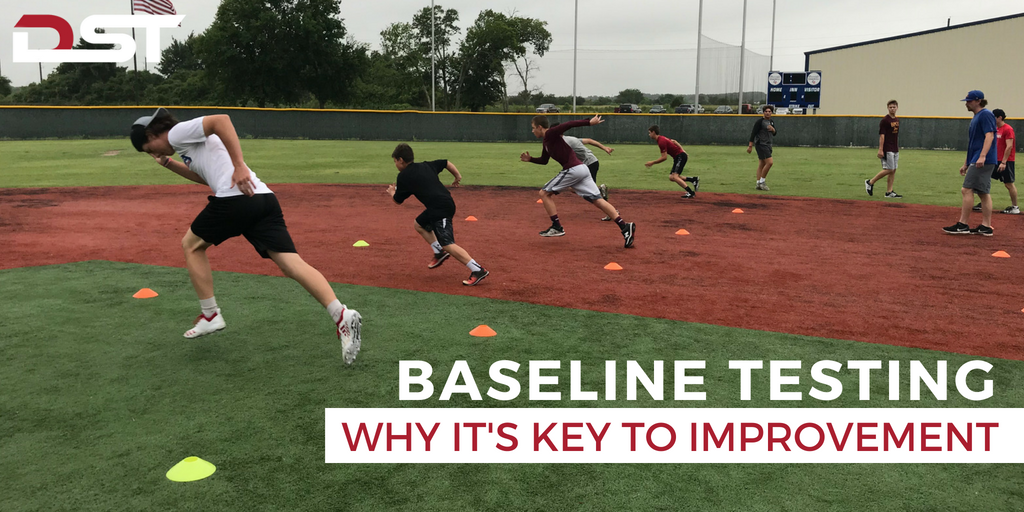Baseline testing is important for many reasons. However, the underlying factor in every reason is one thing: being better.

Being better than other athletes in the same age group, being better than other athletes in the same sport, being better than other athletes in the same position, and even being better than yourself weeks and months ago.
What is one way to measure yourself against other athletes and your former self?
Numbers. Baseline numbers.
You don’t know where you’re going if you don’t know where you’ve been. Baseline testing is a great way to measure yourself against others. Every athlete has goals, some big some small – to be the best on their team, to play for a division 1 college, to play professionally, or even just go from second string to first string.
How do you know you’re the best on your team? It’s simple. Identify the best player and be better than them.
But there are lots of ways an athlete can be the ‘best’… fastest runner (testing speed), hardest kicker (testing leg strength), most accurate shot (testing shot percentages), highest jumper (testing vertical). All of these identifying characteristics are measurable, and testing these is a great way to measure yourself against your opponents, teammates, and athletes you look up to.
In college I had a goal to go professional in my sport, women’s soccer. I talked to a mental coach about it, and the first thing he had me do was identify a current professional player who plays my position, is built similarly to me and has a similar role on her team as I do on mine. He told me to write down everything about her – how many goals she scored, her height and weight, speed and fitness level. Then he told me to evaluate myself and see how I compared. Every athlete is inherently different. But, realistically if I wanted to be a professional soccer player, I had to be on par with or better than current professional soccer players.
Comparing our measurables was a wake up call for me and gave me trackable goals to hit so that I could live my dream.
Baseline testing is a great way to track your individual progress.
Sometimes it’s hard to stay motivated. For me, a key way I stay motivated is tracking my progress. I baseline test various lifts, drills, and measurements so that I can periodically test those again throughout my training program to see how I’m improving… or not improving. If I see those numbers and realize I’m not improving at the rate I’d like to, I can switch up my routine or be more intentional in my training.
Tracking measurables can also help identify patterns – good and bad. I can look back at a time in my career when I was my leanest, fittest, and felt the best, and tie it back to my eating habits and how often/hard I trained. There’s undoubtedly a direct correlation. I can also look back at the times in my career when I felt slow, or had sleeping issues, and tie it back again to my eating habits and how often/hard I trained. Testing – in general – is a great way to keep yourself accountable using the lifting programs made from Dynamic Sports Training.
Getting stronger and leaner with DST my sophomore year of high school helped me get my D1 scholarship offer to Stephen F. Austin State University ( where we won the Southland Conference all four years I was there ) and prepare for my first professional season overseas for IA Akranes FC in Akranes, Iceland. I couldn’t have been prepared without their help!
Baseline testing. Do it. And keep measuring.

Leave a Reply